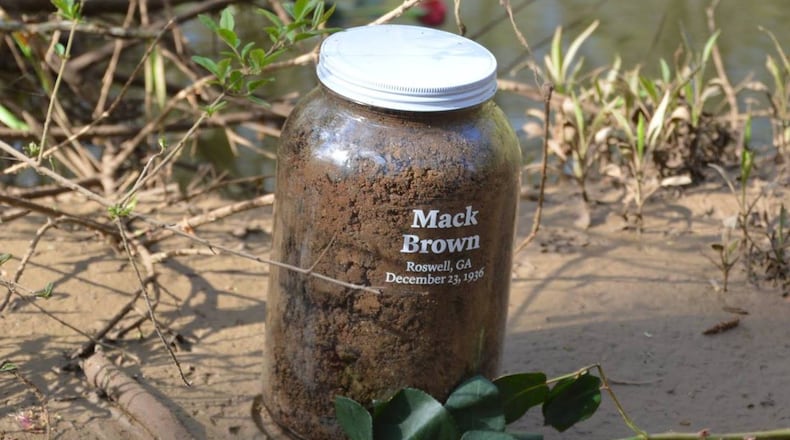Roswell will allow a historical marker to be placed near the site where the body of a Black man was found in 1936.
City Council members approved a request by the Fulton County Remembrance Coalition to place a marker where they collected soil in 2019 in memory of Mack Henry Brown. His body was found on the banks of the Chattahoochee River in Roswell in 1936, handcuffed with a broken neck, feet bound by wire, shot twice in the back and once in the forehead, The Atlanta Journal-Constitution reported at the time.
The marker will have a narrative about Brown as a lynching victim. Brown worked as a janitor in Atlanta and had been missing for five weeks.
The Remembrance Coalition made soil collections near the location of 36 lynchings that took place in Fulton County, including Brown’s. They are kept at the Auburn Avenue Research Library in Atlanta, Rev. Patricia Templeton of Saint Dunstan Episcopal Church said.
This summer, members of the coalition and Roswell residents submitted several public comments to Mayor Lori Henry and the City Council requesting the marker. During a June rally outside city hall, the coalition posted signs with Brown’s name along with the names of George Floyd and Ahmaud Arbery, both Black men whose deaths earlier this year sparked protests and riots.
The Coalition worked with the Equal Justice Initiative in Montgomery, Alabama for the soil collections. Roswell documents on the historical marker regarding Brown show the Equal Justice Initiative will pay for the cost of the plaque that will be atop a nearly 6-foot-tall pole.
According to the Remembrance Coalition, the soil collections and markers are intended to foster conversations on racial injustice.
In June, members of the U.S. Senate debated a bill to designate lynching as a federal hate crime but didn’t come to agreement.
About the Author
The Latest
Featured



